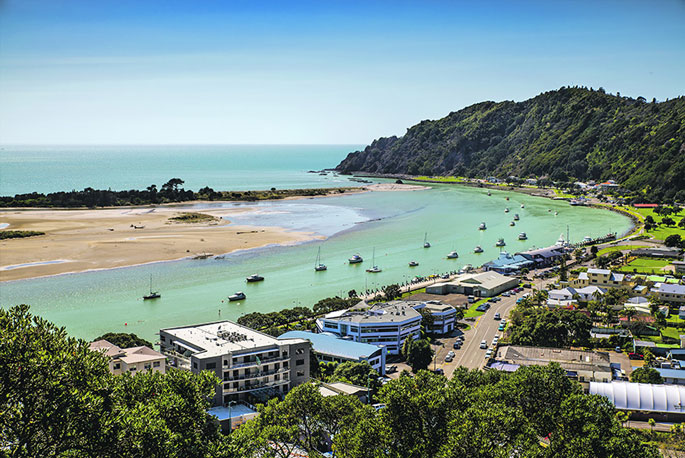New categories for describing the workability of the Whakatāne river bar have been criticised by members of Coastguard Whakatāne as being confusing and dangerous, but Bay of Plenty Regional Council says the new terminology is meant to simplify bar conditions for boaties.
Up until October 16, the regional council's senior maritime officer used four categories used to describe conditions at the river entrance - workable, workable with caution, unworkable and closed. It has now been changed to workable, workable with caution (increased risk) and closed (very high risk).
Whakatāne Coastguard president Isaac Tait says by no longer having any differentiation between the closed and unworkable terms, it means the Coastguard are no longer able to stop people from crossing the bar in an emergency as experienced skippers has always treated the unworkable term to mean that they could cross at their own risk.
He says Coastguard needs to have the option to close the bar completely when necessary.
'It doesn't have to be because of bad weather, it could be because of an oil spill, the police could be recovering a body, it could be multiple things. Previously, everyone knew that if the bar was closed, you couldn't come in or out, you had to wait until it reopens. It's normally only ever closed for a short period of time.
'But now, when it's closed, it's the same as the old ‘unworkable', which means, ‘we suggest you don't go out, but you can go out'. So, if a school bus has gone off the bridge and there were bodies floating down the river and we didn't want any traffic coming in, we've got no ability to close it, because people are going to say, ‘oh well, it's always closed but people still go in and out'. We don't know how we would ever close the bar if we needed to.”
Mr Tait also objects to how quickly the change was rushed in.
'It would have been nice to have a month or two to advertise these changes in the paper and the radio so people were aware of it. It's not the wording that I object to, I don't mind if they call it raspberries, blueberries and strawberries; we just wanted time to let our public know and to have the ability to close the bar, legally, when we need to.
He says the Regional Council originally wanted to stop calling the bar at all, but Coastguard had objected.
'No one understands, because it's been working fine for 120 years without any problem. Why, all of a sudden, has it changed?
'We've got all our big, rural communities here who listen to Radio 1XX every morning to hear what the bar conditions are so they can decide whether to hook up their trailer or not. If we don't have a broadcast, those guys are going to hook up their trailers, come into town and then they're going to give it a go anyway, and that was our concern.
He says the Regional Council wanted to change it to a simple open or closed.
'There would be no moderation in between, so you couldn't understand the seascape. We got rid of that idea, but now they've done this, which is just as confusing.”
Bay of Plenty Regional Council general manager of regulatory services Sarah Omundsen says the terminology was changed because there was confusion around the difference between unworkable and closed.
'The regional harbour master wanted to avoid any suggestion that an unworkable bar was safe to cross despite the navigational safety risks being high. So, the categories were simplified. We have received good feedback from boaties on this change, and hope that removing any ambiguity makes it easier and safer for everyone."
Ms Omundsen says calling the bar is simply an advisory service provided by the Regional Council's maritime team and not a legal direction.
'The decision whether to cross the bar ultimately lies with the skipper of a vessel. However, there could be serious legal consequences for a skipper if an accident occurs during a bar crossing at a time when the maritime team has given a warning that the bar is closed.”
Mr Tait says that calling it 'closed, but boats can still go out,” didn't make any sense.
'Whereas previously it was unworkable, which meant ‘everyone suggests that you don't go out but no one's stopping you,' and then we had the ability to close the bar, where you legally couldn't go out.
'We've fielded a lot of calls with confused boaties because they've seen people go out when it's closed and they think they can't go out, but they actually can go out.”
When asked whether Coastguard was consulted on the change, Ms Omundsen says no public consultation is required, given it is relatively minor change and simplified things for boaties.
'However, we made sure the changes were advertised widely on the radio, in local newspapers and with fliers at Whakatāne Harbour. We hope that if anyone has any questions about the changes, they will contact the regional council's maritime team.”




0 comments
Leave a Comment
You must be logged in to make a comment.